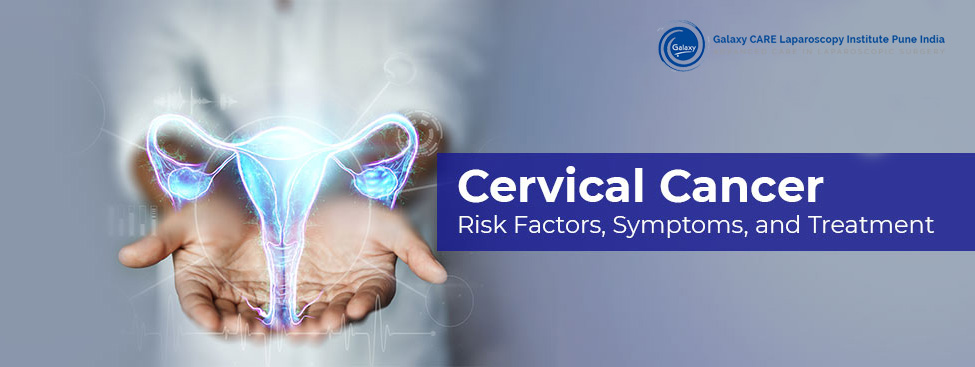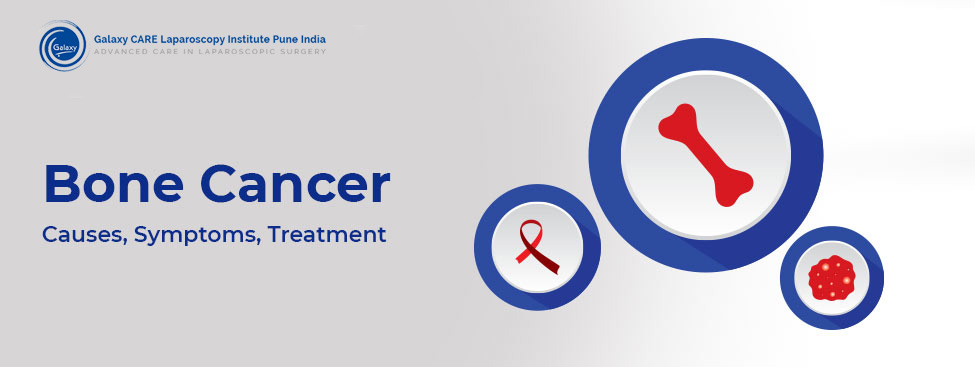
Cervical Cancer: Risk Factors, Symptoms, and Treatment
The cervix is the lower, narrower part of the uterus. It connects the vagina to the top of the womb. Cervical cancer occurs when cells in these tissues become abnormal and start to multiply. It is caused by infection with certain types of human papillomavirus (HPV), a sexually transmitted infection, and is the most common type of cancer in women under 45.
Most often, cervical cancer develops slowly over time. It can take years or even decades for the infected cells to fully develop into cancer cells. However, it may grow faster in the case of women with low immunity. Let’s learn about the causes, symptoms, and treatment options available for cervical cancer.
Risk Factors Of Cervical Cancer
Human Papillomavirus (HPV)
HPV is a common sexually transmitted infection that may cause cervical cancer. The infection is caused by strains of the HPV virus, which have different effects on the body. HPV 16 and HPV 18 are the most frequently associated types of strains of HPV that lead to cervical cancer. The chances of developing cancer via STI is high when a person starts having sex at an early age or have multiple sexual partners, resulting in increased risks of getting infected by different HPV types.
Poor Immunity
There is a definite correlation between the development of cervical cancer and a lower immune function. A person who recently recovered from cancer, or has Aids is likely to have a relatively poor immune system which makes it difficult to fight cervical cancer at the early stage. Basically, poor immunity for a long time increases your chances of developing cervical cancer.
Genital Herpes
It is important to note that genital herpes is a sexually transmitted disease. Women who develop genital herpes have a higher risk of developing cervical cancer as genital herpes can lead to abnormal cell growth and inflammation, which in turn causes abnormal cells to accumulate around the cervix.
Oral Contraceptive
Women who take oral contraceptives are said to have a higher risk of developing cervical cancer than women who do not take them. However, there is no clear evidence yet to show what causes this increased risk.
Smoking & Age
Women who smoke have a high risk of cervical cancer. As far as age is concerned, this type of cancer type is most common after 30 years of age. Hence, regular screening should be done to avoid it.
Symptoms Of Cervical Cancer
At the early stage, a patient may experience no symptoms at all.
Cervical cancer can be treated before it gets worse. Hence, do not hesitate to undergo regular screening.
The most common symptoms of cervical cancer that women experience are:
- Bleeding after sex
- Discomfort & pain during sex
- Bleeding between periods
- Severe pelvic pain
- Vaginal discharge with odour
- Vaginal discharge with blood
- Bleeding after menopause
Treatment Of Cervical Cancer
The treatment for cervical cancer may vary depending on the severity and type of cancer. It includes surgery, chemotherapy, radiotherapy and immunotherapy. The treatment may vary if the woman has a family history of cervical cancer or if she is undergoing treatments for other types of cancer/diseases.
Surgery
Through surgery, the tumor and the abnormal tissues around the uterus and cervix can be removed. A gynecologic oncologist may suggest it in case cancer has not spread beyond the cervix.
Radiation therapy
Radiation therapy is a common treatment for cervical cancer. Radiotherapy is often given before surgery to shrink the tumor, after surgery to kill any remaining cancer cells that were not removed, or as the main treatment for cervical cancer if surgery isn’t an option.
Chemotherapy
Chemotherapy is a cancer treatment. The drugs used in chemotherapy specifically target the rapidly-growing cells in the body and reduce their ability to grow and divide. This leads to a decrease in tumor size, spreading, and production of cancerous cells.
Cervical Cancer Treatment at Galaxy Care Hospital
Galaxy Care Hospital, the best cancer hospital in Pune, has been a pioneer in advanced laparoscopic surgery and cancer treatment. We offer a range of types of therapy to suit each individual, such as chemotherapy, radiation therapy and surgery. The hospital also offers medical consultations with the best oncologists in Pune. If you are experiencing symptoms of cervical cancer, do not delay! Get in touch with us today!


